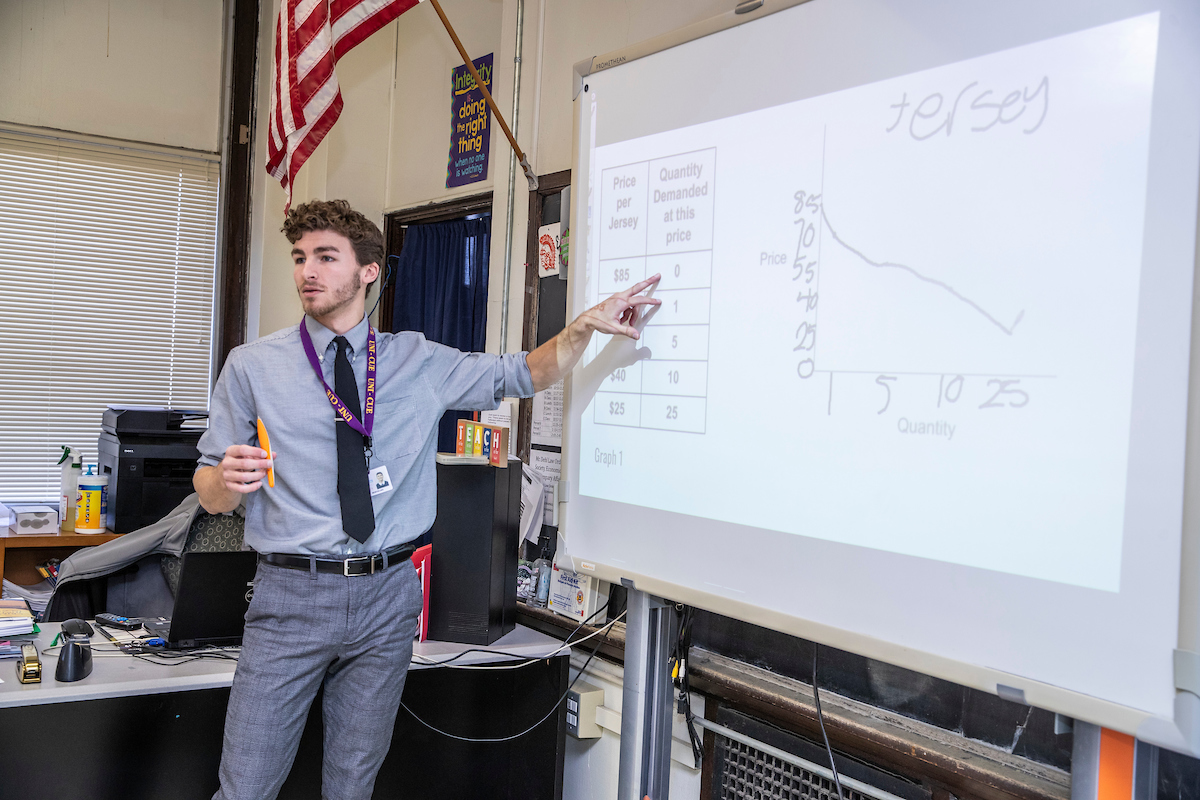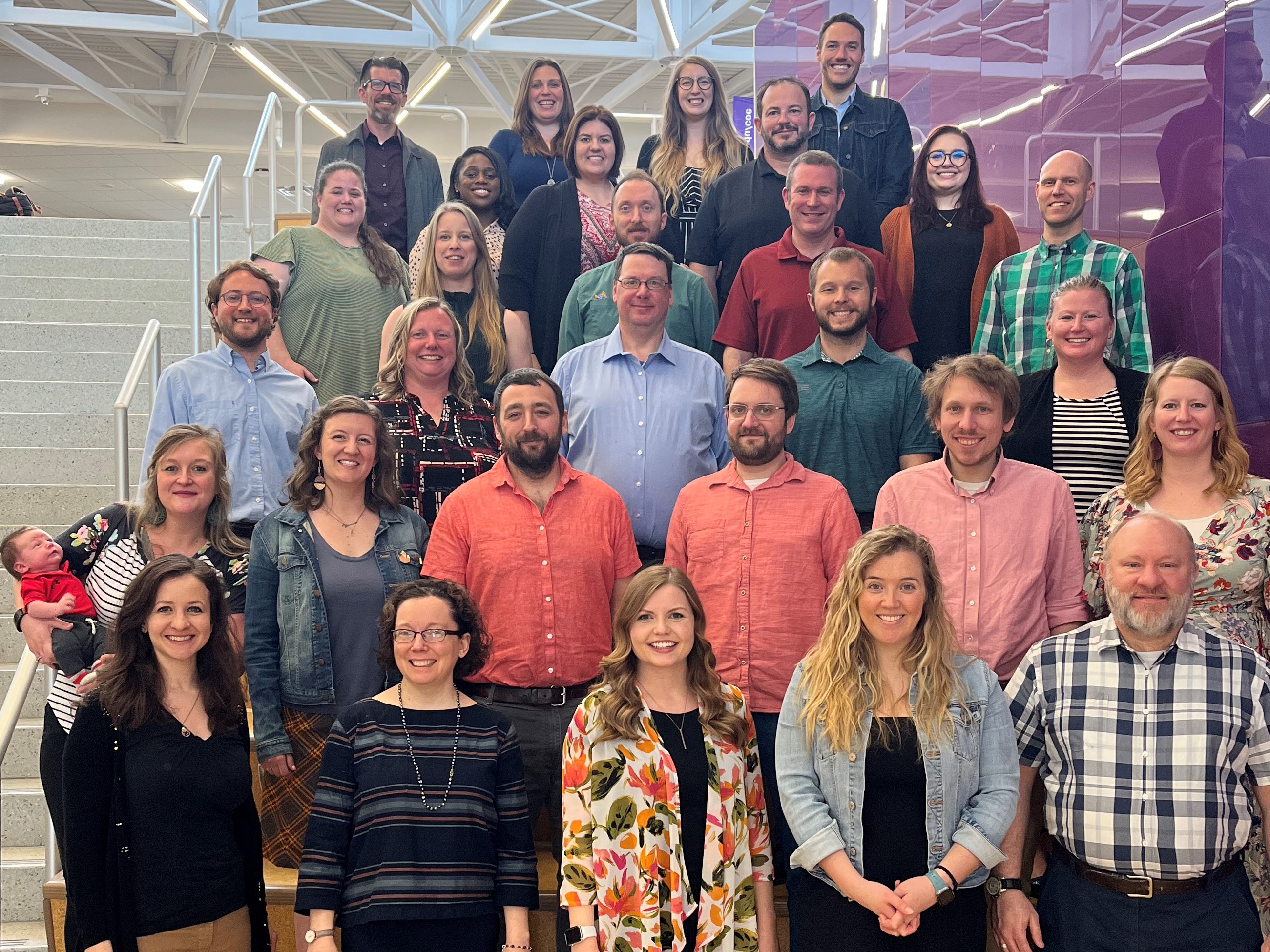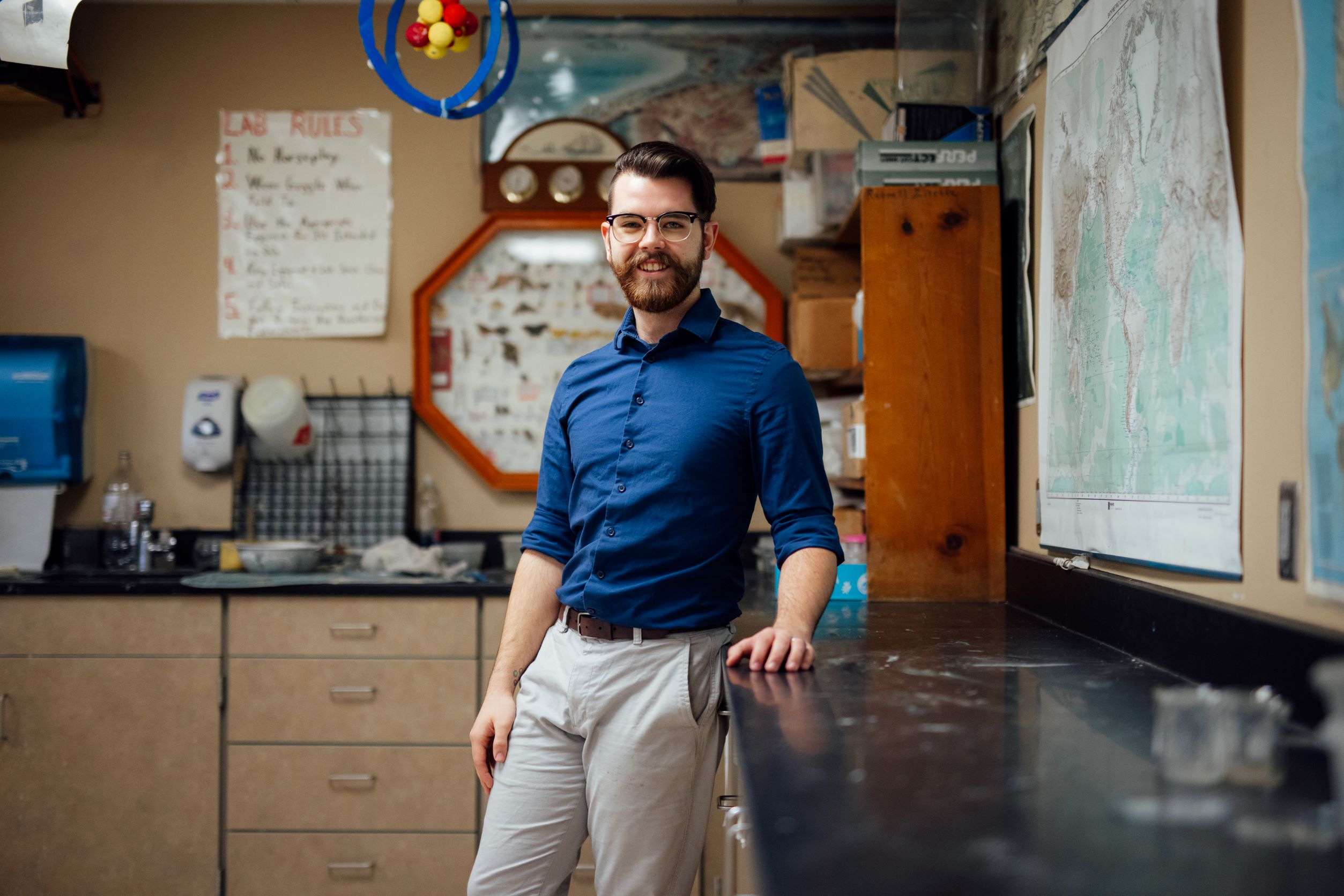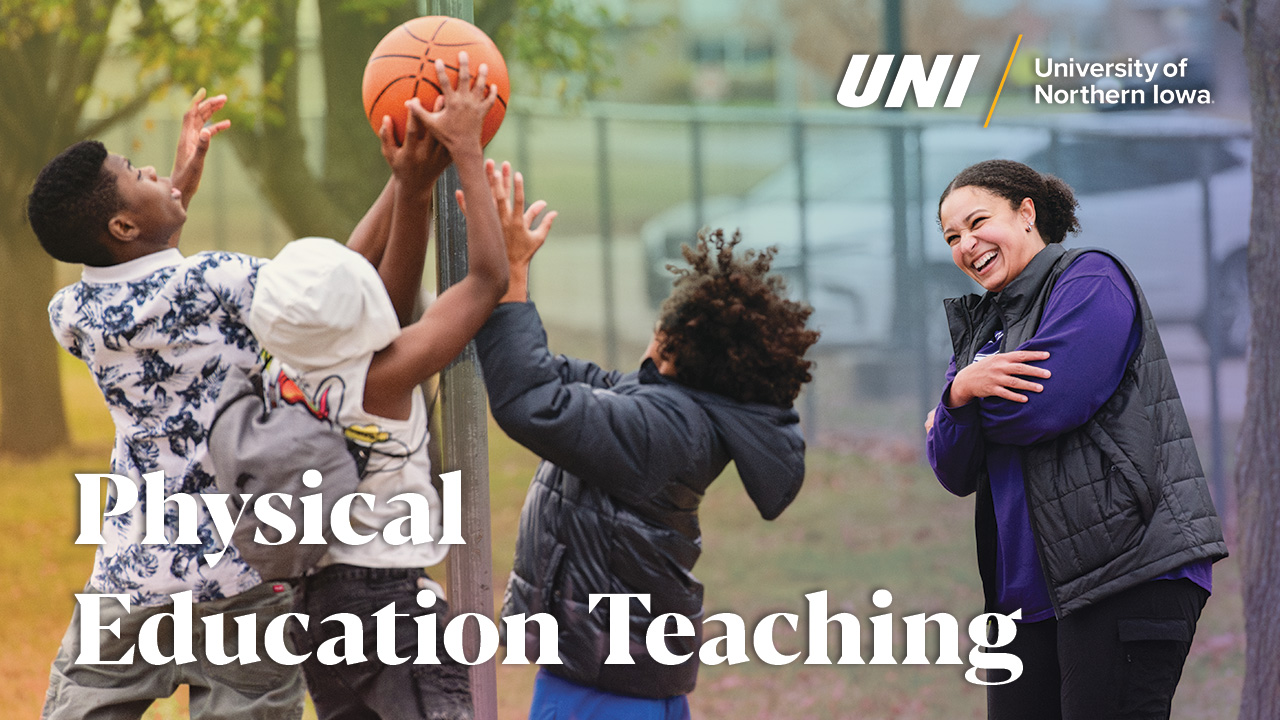Middle/Secondary Education and K-12
Interested in teaching older students? Or have a passion for a subject with the flexibility to lead students anywhere from kindergarten through 12th grade?
Though known for our strength in elementary education, nearly 40 percent of UNI Teacher Education graduates earn degrees in secondary or K-12 roles. At UNI you can:
- Earn a secondary education degree, which prepares you to teach in middle school through high school (grades 5 to 12).
- Add a middle level dual major to your elementary or secondary education major, which strengthens your preparation to teach those middle level grades (5-8)
- Complete teaching degrees in five specialty areas which lead to endorsements to teach at all levels (K-12).
UNI offers more than 20 teaching majors that prepare you to teach at these levels. As part of the largest undergraduate teacher prep program in the state, UNI graduates in secondary education yield the most art, business, TESOL, TESOL/Spanish, English, math and speech endorsements granted annually in Iowa.
The Middle Path
With the only middle school dual majors offered in Iowa, you gain an in-depth understanding of how to teach and lead in intermediate, junior high and middle schools. You have two options:
- Middle level education dual major, offered by the College of Education, pairs with your primary elementary or secondary teaching major. You’ll choose at least two areas of focus (math, science, language arts or social studies). With an extra 9 to 12 credits to meet requirements, you’re on your way to teach at the middle level with endorsements in your subject areas.
- Middle level science education dual major, offered by the College of Humanities, Arts & Sciences. This degree serves as your primary major as you gain a foundation for teaching basic science with coursework in four science disciplines. It pairs with the middle level dual major (secondary). Combined, this dual major puts you in position to earn endorsements in teaching middle school science (5-8) as well as basic science (5-12) and one other middle school endorsement in language arts, social studies or math.
Middle school principals value these dual majors and the extra preparation you bring to middle school classrooms.
Middle Level Education
College of Education
Major & Lead Faculty Advisor
Middle level education dual major, Carolyn Weber
College of Humanities, Arts & Sciences
Major & Lead Faculty Advisor
Middle level science education dual major, Lawrence Escalada

Earning Your Secondary Teaching Degree
These degrees are built on a base of subject matter expertise – like English, history or math – supported by professional core coursework and robust field experiences required of all UNI Teacher Education students.
As with all teaching majors, you get started by enrolling at UNI, completing initial coursework and then applying to UNI Teacher Education. You may get started a little later on your field experiences as you initially concentrate on your areas of interest – but it varies based on your individual path and progress.
You’ll be “at home” in the college which offers your degree and you’ll earn your degree from that college. (If you have a dual major, you may have degrees from two colleges!).
You’ll interact with the College of Education as well, which coordinates most of your field experiences and helps monitor your progress toward licensure through the COE Advising & Teacher Education Success (CATS) office.
Secondary (5-12) Teaching Majors & Contacts
College of Humanities, Arts & Sciences
Major & Faculty Advisors
Biology teaching, Linda Reardon-Lowry, Jesse Wilcox
Chemistry teaching, Dawn Del Carlo
Communication-Theatre teaching, Lori Johnson
Earth science teaching, Kyle Gray, Aaron Spurr
English teaching, Sheila Benson
Mathematics teaching, Catherine Miller
Middle level dual major (secondary teaching), Lawrence Escalada
Physics teaching, Paul Shand
Science education: comprehensive secondary, Lawrence Escalada
Science education: Middle/junior high, Lawrence Escalada
Spanish teaching, Elena Dobrila
Technology and engineering teaching, Chris Shaw
College of Social & Behavioral Sciences
History teaching, Chad Christopher
Social sciences teaching (Basic), Chad Christopher
Social sciences teaching (Generalist), Chad Christopher
Social sciences teaching (Specialist), Chad Christopher
Wilson College of Business
Business teaching, Jennifer Anderson

The K-12 Specialties
Teaching degrees in five specialty areas lead to endorsements that give you the ability and flexibility to teach in multiple levels. They include:
- Art education (K-8 and 5-12)
- Music education (K-8 and 5-12)
- Physical education teaching (K-8 and 5-12)
- Teaching English to speakers of other languages (TESOL) teaching (K-12)
- TESOL/Spanish teaching (K-12)
With these degrees, you’ll gain practical experience in both elementary and middle/secondary classrooms and learn methods of teaching to apply to these different age groups. Graduates often find themselves working in multiple levels and classrooms in the careers that follow.
K-12 Teaching Majors & Contacts
College of Humanities, Arts & Sciences
Major & Faculty Advisors
Art education, Wendy Miller
Music education, Victor Acevedo (Jazz), Michelle Swanson (Vocal), Kevin Droe (Instrumental)
TESOL teaching, Caroline Ledeboer
TESOL/Spanish teaching, Caroline Ledeboer
College of Social & Behavioral Sciences
Physical education teaching, Fabio Fontana

RAPIL: Another path to secondary teaching
There is more than one path to your secondary teaching degree in Iowa. Are you a working professional who’s ready to share your knowledge in the classroom? The Regents’ Alternative Pathway to Iowa Licensure, or RAPIL, is a program for adult learners seeking to change careers and teach at the high school level.
This two-year, state-approved, mostly online program is for students with a bachelor’s degree and a minimum of three years’ work experience. In the second year of the program, you’ll work as a salaried teacher in a secondary Iowa classroom. This initiative is a collaboration of UNI, University of Iowa and Iowa State University.
Contact: Amy Mayer, amy.mayer@uni.edu


